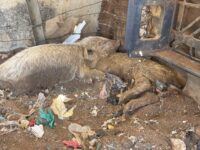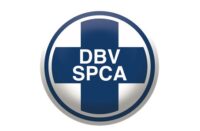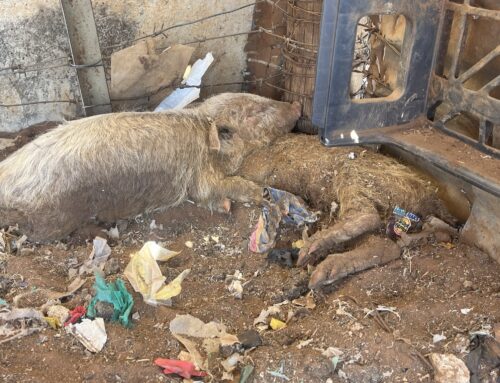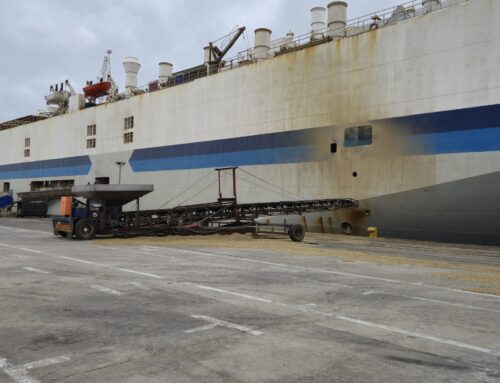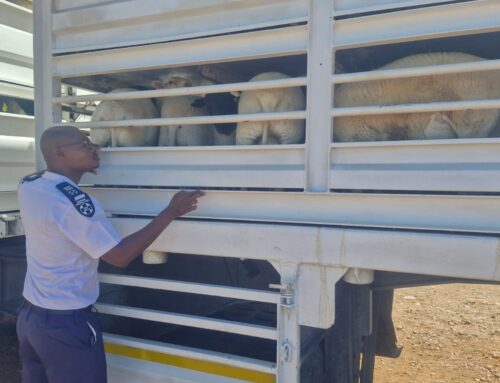Animal Welfare Concerns in South Africa’s Fish Farms
The National Council of SPCAs’ Farm Animal Protection Unit regularly conducts pro-active inspections at various fish farms across South Africa. Sadly, while the aquaculture industry proclaims itself a solution to the environmental degradation caused by over-fishing in marine environments, the truth is far more disturbing.
Inspectors from the Farm Animal Protection Unit have, over the years, uncovered severe cruelty and neglect at several aquaculture facilities. Millions of farmed fish are subjected to rampant suffering as a result of poor management and ignorance. And, because many people don’t see fish as sentient beings, their suffering is often overlooked, even by concerned and compassionate members of the public.
When people think about animal cruelty, they often picture neglected dogs, abused farm animals, or wildlife threatened by habitat destruction. Rarely do fish come to mind. However, the state of aquaculture has raised significant animal welfare concerns, particularly in South Africa, where regulations remain inadequate, and enforcement is inconsistent.
Unseen and Forgotten
According to National Inspector White, one of the main reasons fish welfare is often ignored is the common misconception that fish do not feel pain in the same way as mammals. Because they do not display emotions or distress in ways that people easily recognise, their suffering is disregarded. Furthermore, fish farms are largely hidden from public view, reducing awareness and concern.
To address this, the NSPCA is working to increase public awareness, encouraging consumers to demand higher welfare standards from the aquaculture industry.
Weak Regulations and Enforcement
The Animals Protection Act 71 of 1962 is the primary legislation governing animal welfare in South Africa. However, traditionally, fish farming has not been as strictly regulated as the farming of other farm animals such as cattle, pigs, or chickens. While some welfare standards exist, they are often poorly enforced, leaving room for neglect and cruelty.
The NSPCA is advocating for stronger, more specific laws addressing fish welfare. With increasing public awareness, there is hope that policymakers will introduce stricter regulations and better enforcement mechanisms to ensure fish are treated as humanely as their terrestrial counterparts.
Investigations Reveal Disturbing Conditions
In 2024, NSPCA Inspectors uncovered severe welfare violations at a fish farm in Mpumalanga, South Africa, where thousands of Mozambican Tilapia were found dead and decomposing. Upon investigation, the NSPCA found multiple areas of concern at the government-backed facility. National Senior Inspector Appalsamy described alarming scenes of mismanagement and neglect. “Overall, the facilities were deteriorating and creating unhealthy conditions for the fish. It was obvious that the ponds and enclosures had not been cleaned for a substantial length of time, with excessive algal growth and glaringly poor water quality,” Inspector Appalsamy recalls. “With the frequent power outages we often experience in South Africa, alternative power sources on farms are critical. Unfortunately, this farm, as well as many others, lacks these alternative energy sources. Since aquaculture systems depend on continuous water circulation for oxygenation, power failures without suitable alternatives can result in mass fish deaths.” In the case of the farm in Mpumalanga, the farm manager did not notify authorities about these problems, allowing conditions to worsen, which ultimately led to the unnecessary suffering uncovered by the Inspectors.
Who Is Responsible?
According to Inspectors White and Appalsamy, accountability in the fish farming industry falls on multiple levels. Those responsible for managing these farms have a legal and ethical duty to ensure their facilities maintain humane conditions. Regulatory bodies, such as government agencies, need to effectively oversee aquaculture facilities to implement and enforce animal welfare laws and to ensure standards are maintained.
The NSPCA suggests that consumers can have a significant impact on improving standards in the aquaculture sector by demanding better welfare practices and supporting ethical fish farms.
Stronger regulations, better monitoring, and increased transparency are essential to holding these responsible groups accountable and to prevent further suffering.
Legal Consequences for Neglect
While prosecutions for fish welfare violations are rare, the NSPCA is pushing for stricter regulations. They are currently pursuing a case involving hundreds of catfish that were left in horrific conditions that led to cannibalism among the fish. If found guilty, the responsible parties face either 12 months of imprisonment or a R40,000 fine.
However, the penalties remain minimal compared to the suffering inflicted. The NSPCA believes that stronger legal consequences could serve as a deterrent and encourage compliance with welfare standards.
The Environmental Impact of Poorly Managed Fish Farms
Beyond animal welfare concerns, poorly managed fish farms can have significantly negative impacts on the environment. According to Inspector Appalsamy, waste, uneaten food, and chemicals from fish farms can contaminate surrounding water bodies if discharged untreated. In addition to this, by overstocking fish farms, oxygen is depleted faster from the water, which can kill fish and other aquatic organisms. Poor farm conditions can lead to outbreaks of disease, which may spread to wild fish populations.
To counter the potentially dangerous effects that mismanaged and neglected fish farms can have on the environment, the NSPCA collaborates with the Department of Forestry, Fisheries, and Environment to push for sustainable and responsible fish farming practices.
How Can Consumers Make Ethical Choices?
Consumers can play a crucial role in improving fish welfare. The NSPCA suggests some steps that people can take to make more informed and humane choices:
- Refer to the WWF-SASSI list: The World Wildlife Fund (WWF) Southern African Sustainable Seafood Initiative (SASSI) categorises seafood into green (sustainable), orange (caution), and red (avoid) based on conservation status. Always choose fish in the “green” category.
- Ask questions: When purchasing fish, inquire about its source and whether the farm follows humane practices.
- Support ethical retailers: Buy from stores and restaurants that prioritise responsible sourcing.
- Report cruelty: If you suspect animal welfare violations at a fish farm, report them to the NSPCA immediately.
A Call for Change
The NSPCA continues to advocate for better fish welfare standards, but public support is essential. Fish farming is often overlooked, yet the suffering of these animals is just as real as that of any other farmed species.
By staying informed, making ethical choices, and holding the industry accountable, South Africans can help drive meaningful change in the aquaculture sector, ensuring that fish farms operate responsibly and humanely, and that no fish has to suffer unnecessarily.
Listen to the third episode of NSPCA Today, our brand new animal welfare news podcast, as we delve deeper into this story:
If you are as passionate about animals and their well-being as we are, consider supporting our causes by donating.
Latest News Posts
Will You Be the One Who Takes Action?
Most people will scroll past this. But will you be the one who stands up for animals?
Animal welfare isn’t always in the spotlight, but it changes lives – for every neglected, abused, or suffering animal we help. Our teams work tirelessly, often behind the scenes, ensuring animals across South Africa are protected.
This work is relentless. The challenges are immense. But with more hands, hearts, and resources, we can do even more.
The equation is simple: the more supporters we have, the greater our reach, the stronger our impact.
Be part of the change. Become an NSPCA Project Partner today. From just R50 per month, you can help ensure that no animal suffers in silence.

